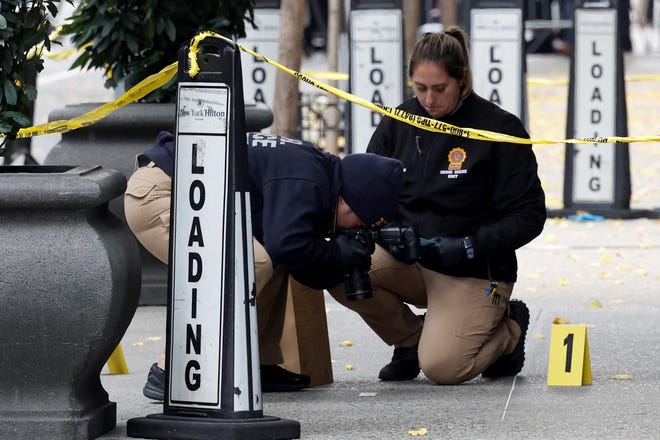Tragic End to the Understated Leadership of UnitedHealthcare CEO
Brian Thompson, UnitedHealthcare CEO, was an unobtrusive figure working silently to shape America’s healthcare system. His untimely demise in a targeted murder in the heart of New York City thrust this quiet change-maker into the harrowing glow of the national spotlight. This tragic event calls for a detailed exploration of his role, his vision for healthcare, and the system he navigated.
Brian Thompson: The Unseen Architect of America’s Healthcare
Thompson was at the helm of UnitedHealthcare, one of the largest health insurance providers in the U.S. His reach was expansive but unacknowledged–affecting millions of lives, his influence permeated through America’s healthcare like a ghost, invisible to those outside the industry. Steering UnitedHealthcare for over 20 years, Thompson’s acumen and leadership transformed not only the insurance arm of the enormous UnitedHealth Group Inc. but also its Medicare and retirement businesses.
Health Coverage and Impact on American Lives
As CEO, Thompson’s actions impacted more than 49 million Americans, a figure greater than the population of Spain, attesting to his unwavering influence on health coverage. UnitedHealthcare was at the forefront of delivering Medicare Advantage plans, a segment vital to the U.S. government’s Medicare program for those aged 65 and beyond. Apart from this monumental role, the company under Thompson’s steady guidance also dealt with individual insurance and the administration of health insurance coverage for numerous employers, along with state and federally funded Medicaid programs.
Thompson’s Vision for the Future of Healthcare
Last year at an Investor meeting, Thompson charted out a shift towards “value-based care”. Abandoning the traditional model centered around treatments, his vision focused on the notion that healthcare should be made simpler, with the emphasis on keeping patients healthy. His approach positioned caregivers in a proactive role, tasked with the goal of preventing illness. Thompson pledged that UnitedHealthcare would help individuals navigate this proposed future, relieving American families from the burden of health-related decision making.
Public Outcry and Policy Changes
Thompson’s policy changes were not without controversy. His 2021 decision to deny payments for non-critical hospital emergency room visits drew massive public outrage. The public contended that expecting patients to self-diagnose during potential emergencies could be catastrophic and deter them from seeking immediate help due to the fear of potential financial penalties. UnitedHealthcare later postponed the rollout of this change, reflecting the organization’s ability to hear and respond to public opinion.
Tragedy Casts a Chilling Spotlight on Thompson
The shocking murder of Brian Thompson took place early in the morning outside a midtown Manhattan hotel. The perpetrator, a masked figure, disappeared into the city, leaving behind unanswered questions and a gaping hole in America’s healthcare field. As investigations continue with authorities sifting through Thompson’s social media accounts, interviews with employees and family members, his legacy as one of the industry’s significant movers remains intact.
Remembering Brian Thompson
Brian Thompson was far more than a high-earning executive with an annual pay package of $10.2 million, he was a man with a vision to transform healthcare. He was a University of Iowa alumnus and a committed leader who spent his career developing forward-thinking strategies for healthcare. His untimely death does not erase his decades-long dedication but only heightens our collective responsibility to continue his legacy, ensuring value-based care and a customer-focused healthcare industry become the norms, not the exceptions.
Originally Post From https://abcnews.go.com/US/wireStory/united-healthcare-ceo-low-public-profile-shot-death-116457875
Read more about this topic at
UnitedHealthcare CEO Brian Thompson fatally shot in ‘ …
UnitedHealthcare CEO kept a low public profile. Then he …


